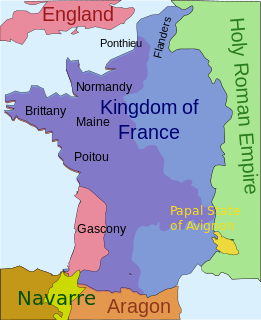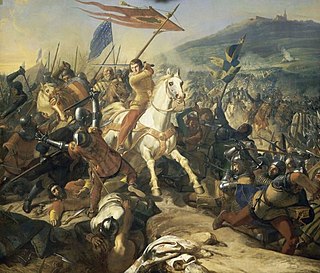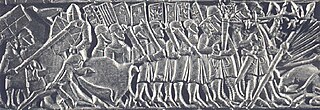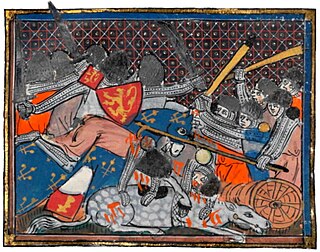 W
WThe Anglo-French War was a conflict between 1294–98 and 1300–03 revolved around Gascony. The Treaty of Paris (1303) ended the conflict.
 W
WThe Battle of Mons-en-Pévèle was fought on 18 August 1304 between the French and the Flemish. The French were led by King Philip IV "the Fair" in person.
 W
WThe Franco-Flemish War was a conflict between the Kingdom of France and the County of Flanders between 1297 and 1305.
 W
WThe Gascon campaign of 1294 to 1303 was a military conflict between English and French forces over the Duchy of Aquitaine, including the Duchy of Gascony. The Duchy of Aquitaine was held in fief by King Edward I of England as a vassal of King Philip IV of France. Starting with a fishing fleet dispute and then naval warfare, the conflict escalated to open warfare between the two countries. In spite of a French military victory on the ground, the war ended when the Treaty of Paris was signed in 1303, which restored the status quo. The war was a premise to future tensions between the two nations culminating in the Hundred Years' War.
 W
WThe Battle of the Golden Spurs was a military confrontation between the royal army of France and rebellious forces of the County of Flanders on 11 July 1302 during the Franco-Flemish War (1297–1305). It took place near the town of Kortrijk (Courtrai) in modern-day Belgium and resulted in an unexpected victory for the Flemish. It is sometimes referred to as the Battle of Courtrai.
 W
WThe Treaty of Athis-sur-Orge was a peace treaty signed on 23 June 1305 between King Philip IV of France and Robert III of Flanders. The treaty was signed at Athis-sur-Orge after the Battle of Mons-en-Pévèle and concluded the Franco-Flemish War (1297-1305).
 W
WThe battle of Zierikzee was a naval battle between a Flemish fleet and an allied Franco-Hollandic fleet which took place on 10 and 11 August 1304. The battle, fought near the town of Zierikzee, ended in a Franco-Holland victory. The battle is part of a larger conflict between the Count of Flanders and his French feudal lord, King Philip IV of France (1296–1305).